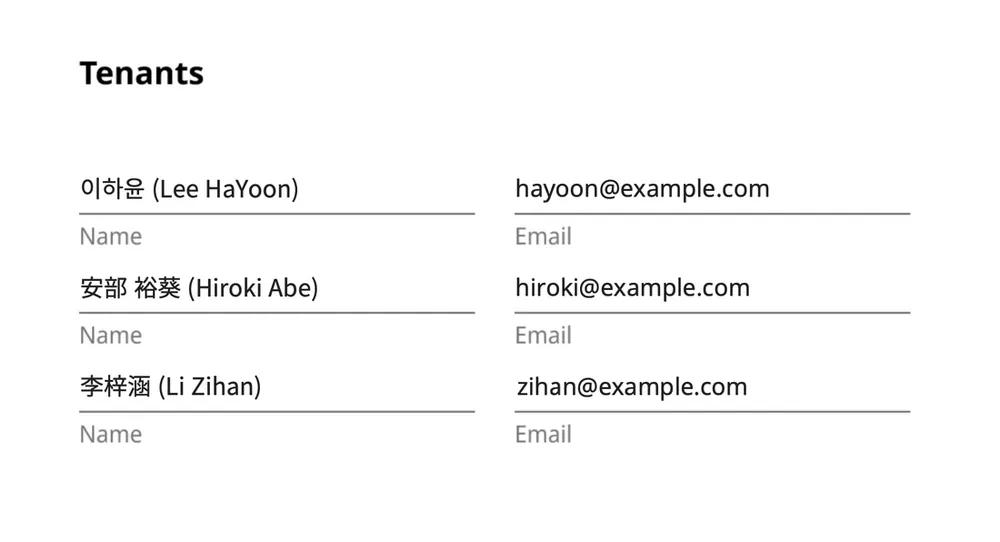There are 1.5 billion people worldwide who write and speak Chinese, Japanese, or Korean. It is no surprise that supporting the character sets in these languages has been one of our most often requested features.
We are excited to announce that Anvil now supports all three languages—Chinese, Japanese, and Korean (CJK)—in all products! You can fill, generate, and sign PDFs with text from these languages via the API, through Workflows, or with Etch e-sign packets.

If you have an Anvil account, CJK languages are already enabled in your organization. All you need to do is use the text of your choice!
Don't have an Anvil account yet? Sign up now to test out CJK support.
PDF fill example with CJK
As an example, here is the code used to fill the PDF pictured above with our NodeJS API client:
import fs from 'fs'
import Anvil from '@anvilco/anvil'
const pdfTemplateID = 'kA6Da9CuGqUtc6QiBDRR'
const apiKey = '7j2JuUWmN4fGjBxsCltWaybHOEy3UEtt'
const exampleData = {
title: 'Rental Agreement',
fontSize: 12,
textColor: '#222222',
data: {
tenantName0: '이하윤 (Lee HaYoon)',
tenantEmail0: 'hayoon@example.com',
tenantName1: '安部 裕葵 (Hiroki Abe)',
tenantEmail1: 'hiroki@example.com',
tenantName2: '李梓涵 (Li Zihan)',
tenantEmail2: 'zihan@example.com',
},
}
const anvilClient = new Anvil({ apiKey })
const { statusCode, data } = await anvilClient.fillPDF(
pdfTemplateID,
exampleData
)
// `data` will be the filled PDF raw bytes
fs.writeFileSync('output.pdf', data, { encoding: null })
Have questions?
Let us know if you have any questions at hello@useanvil.com. Are you developing something cool with PDFs or paperwork automation? We'd love to hear from you!

